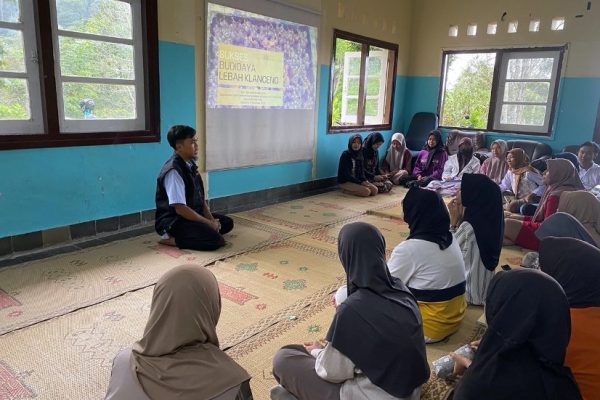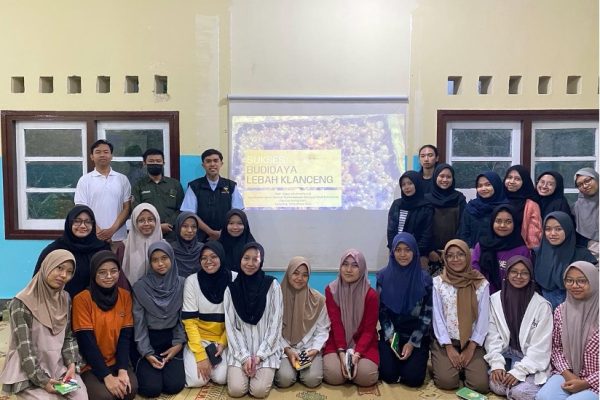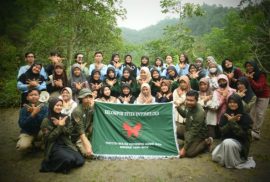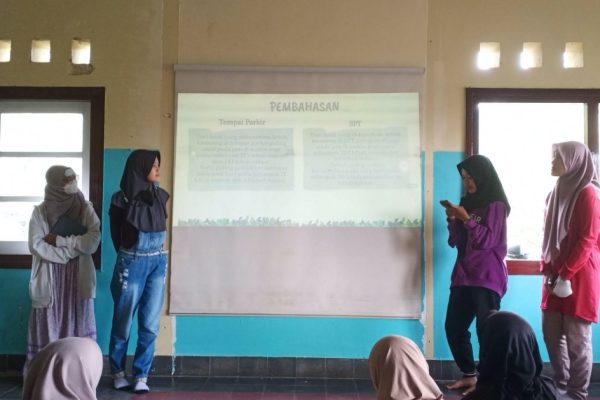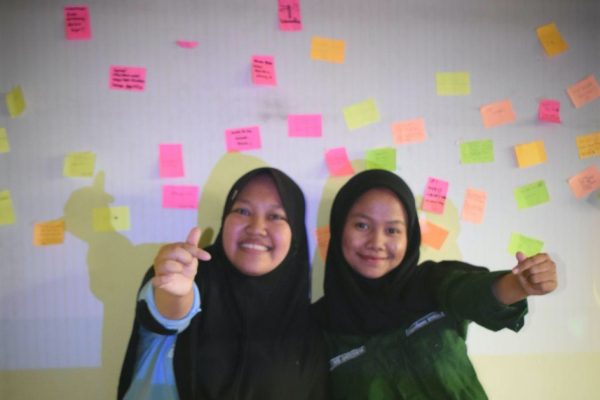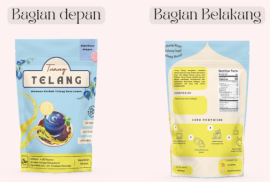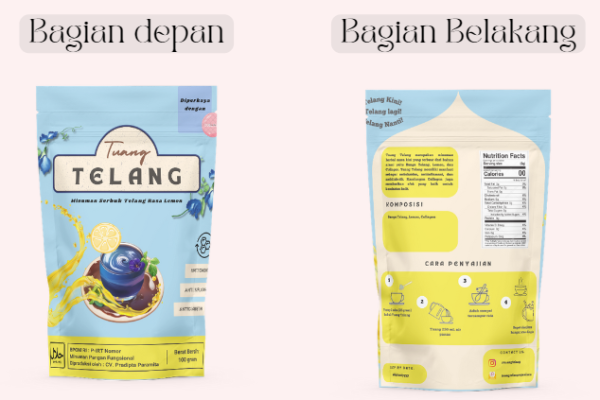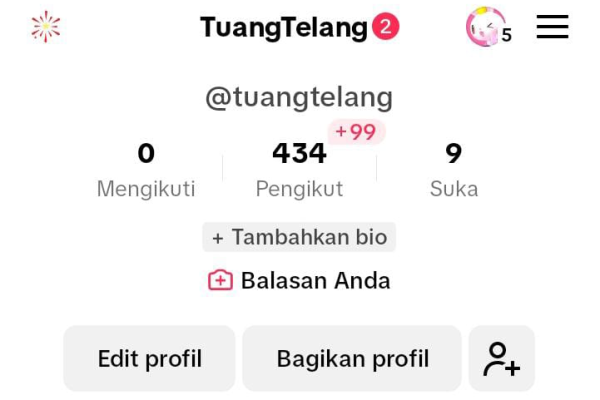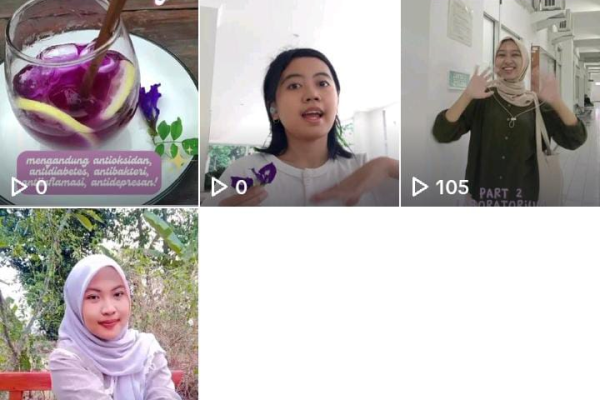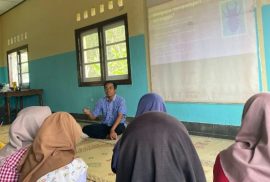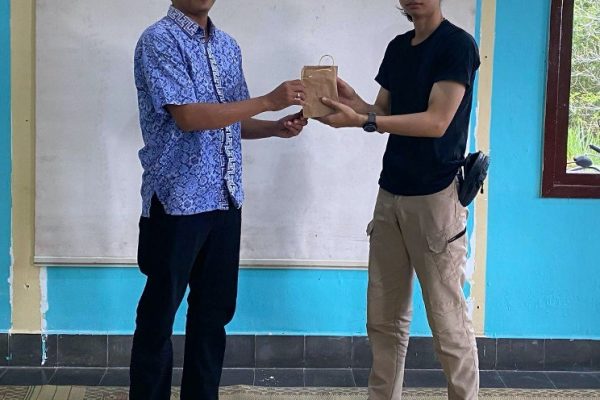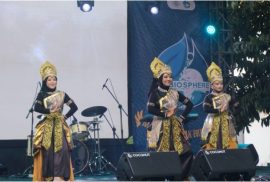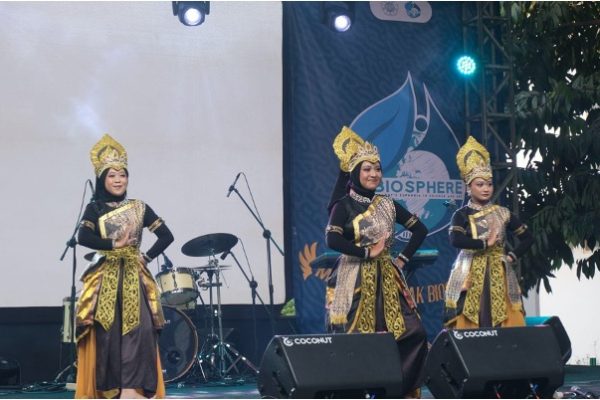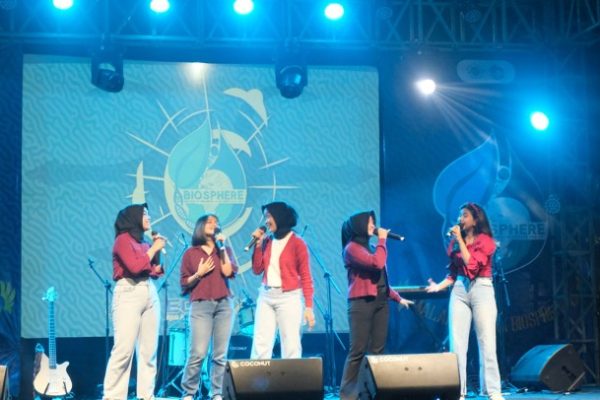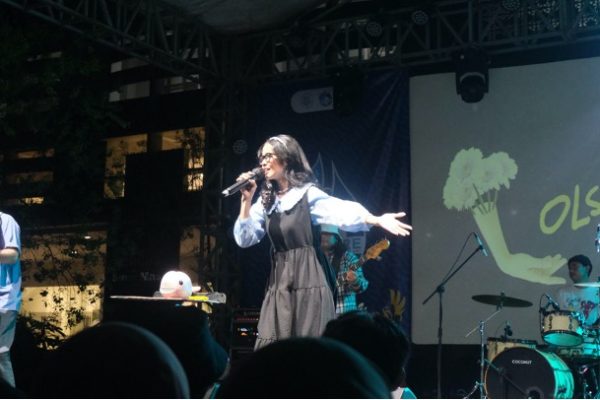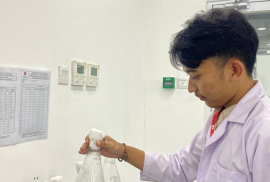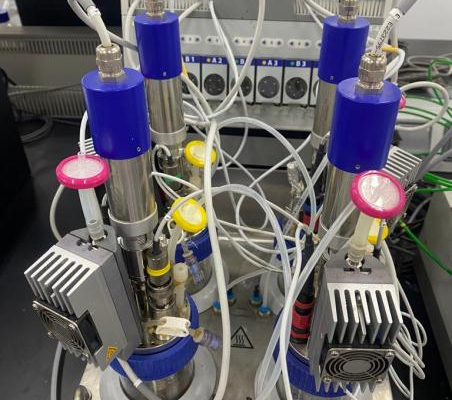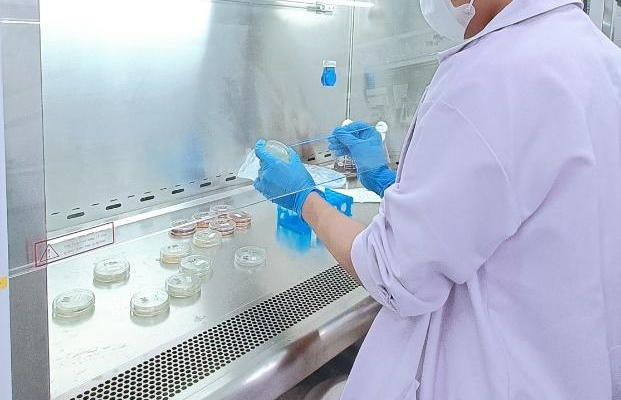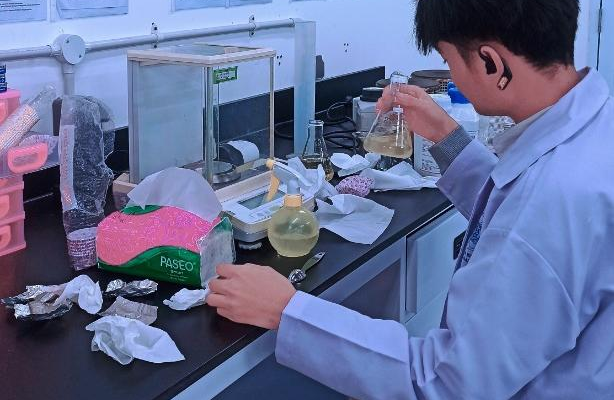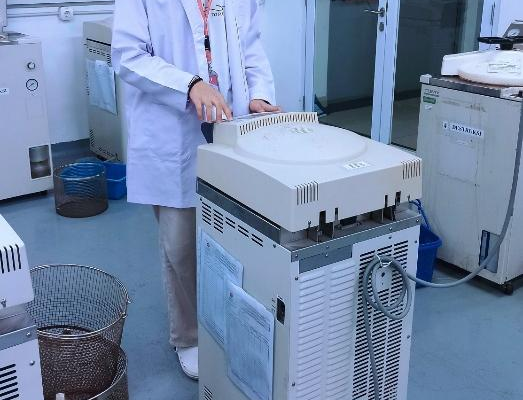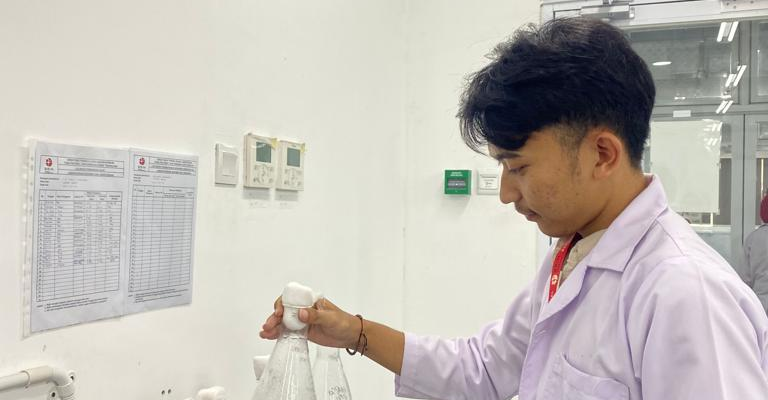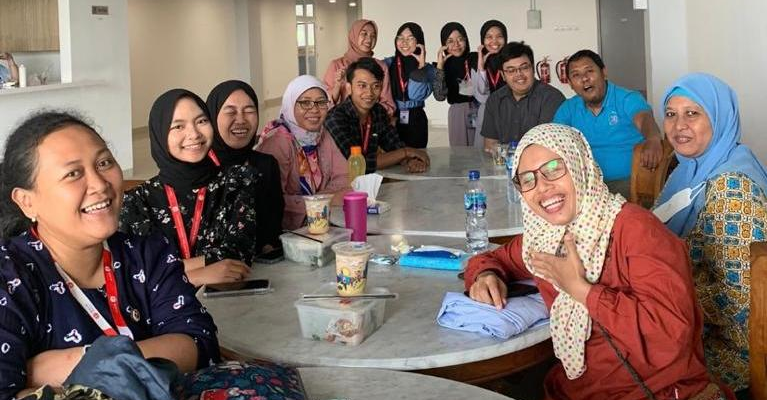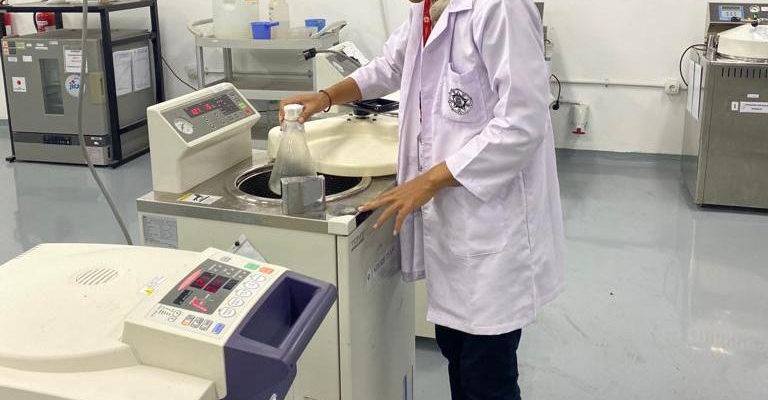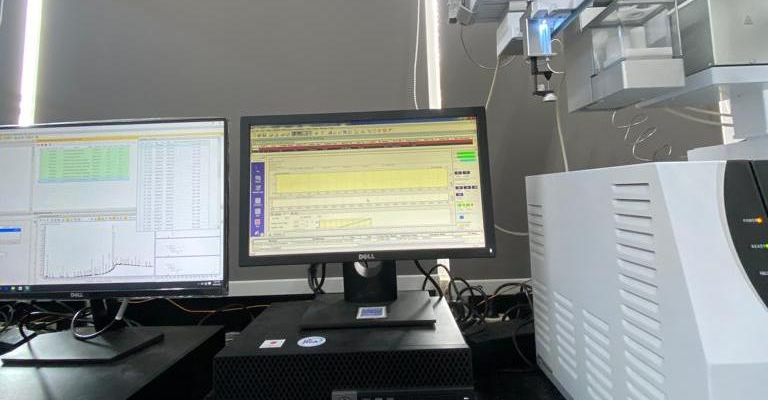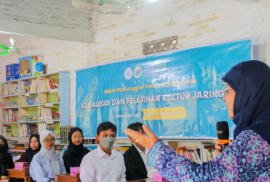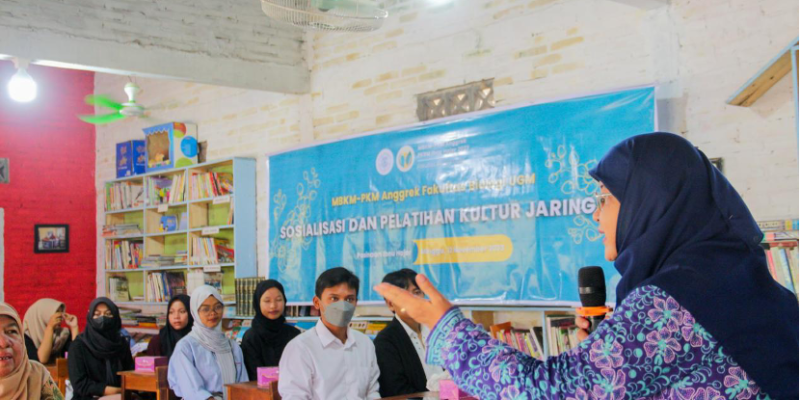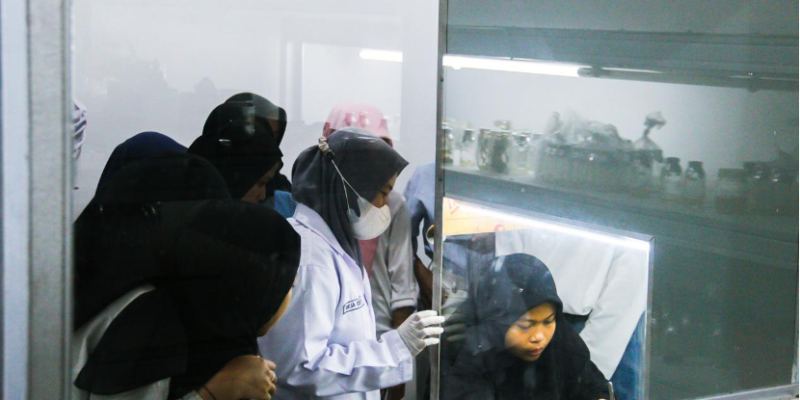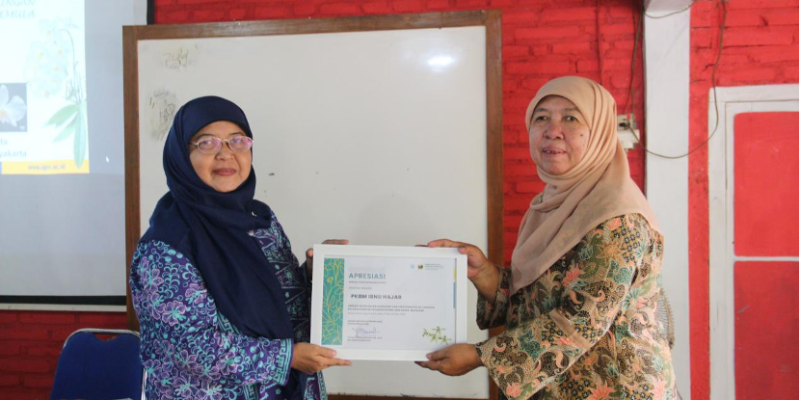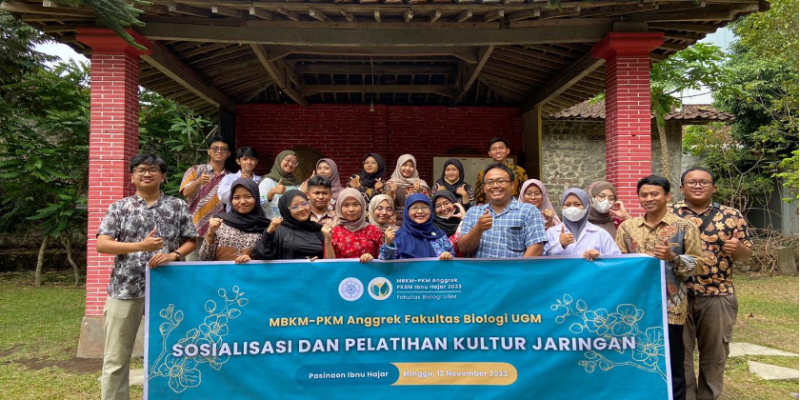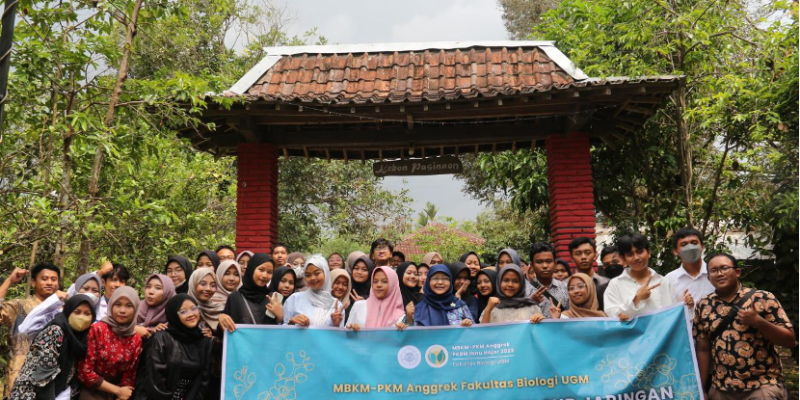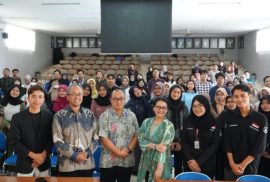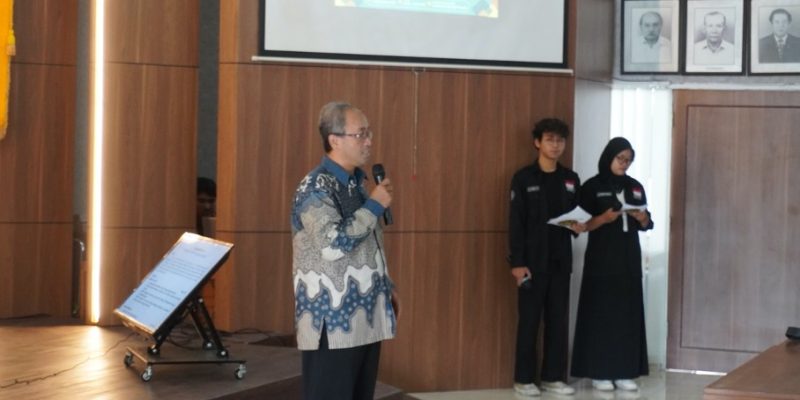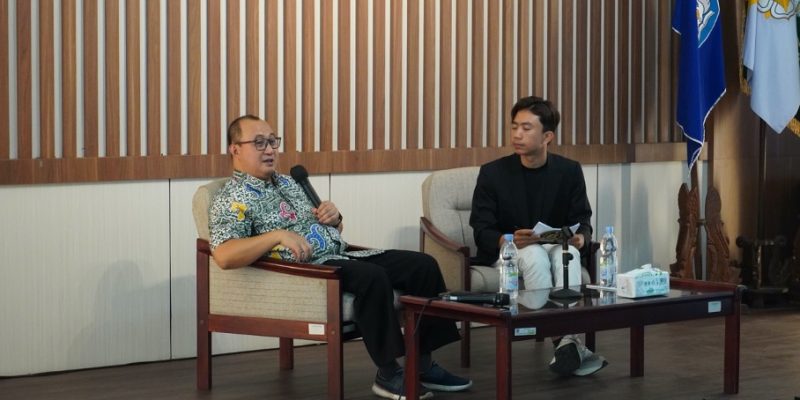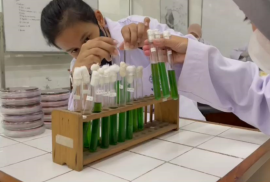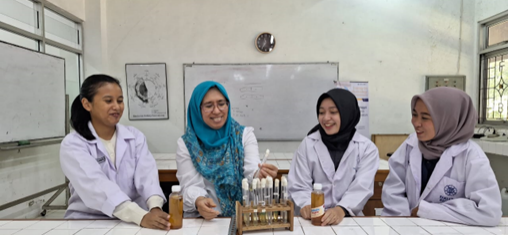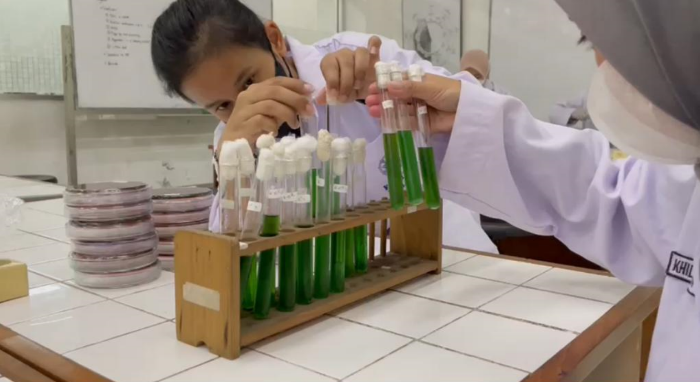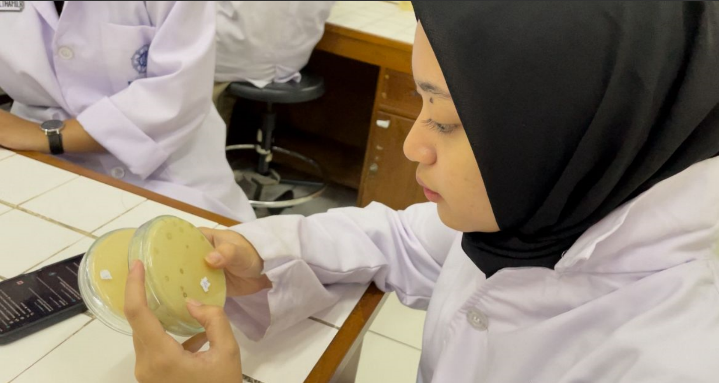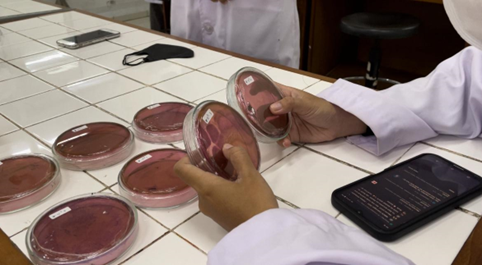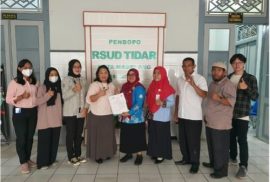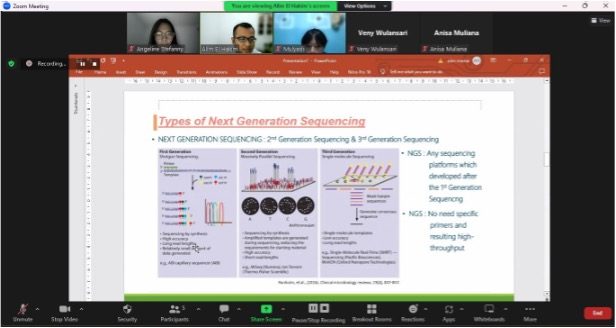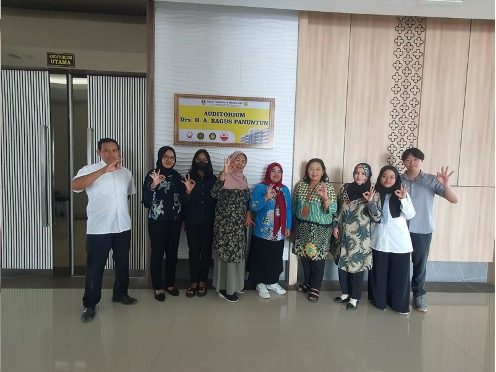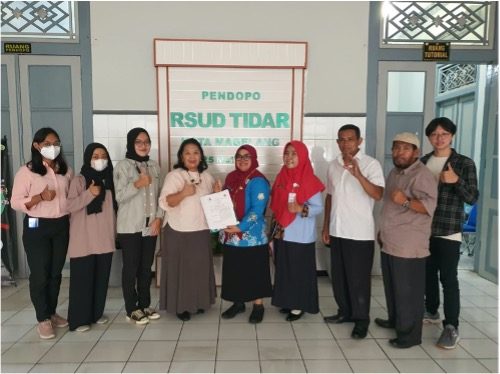Arsip:
Student Activities
The Entomology Study Group (KSE) organized an Entrepreneurship Seminar with the theme “Business Potential of Klanceng Bees in the Digital Era: A Case Study of Local Breeders” on Saturday, November 11, 2023. The Entrepreneurship Seminar took place from 3:00 to 5:00 PM WIB at Wisma Merbabu, Kaliurang, in conjunction with the KSE XXV Hatching Training and Entotalk #2 activities. The event aimed to provide knowledge and skills related to entrepreneurship and identify potential business opportunities in the field of Entomology. The activity was attended by KSE members and guided by Novia Noor (KSE XXII) and Adzkiya Aqmaliza (KSE XXIII).
The Entrepreneurship Seminar featured Mr. Setyo Adi Winarno, S.Si. as a successful breeder and entrepreneur of Klanceng bees with extensive connections as the speaker. The topics covered an introduction to Klanceng bees, explanations of derivative products such as beeswax and propolis, the search for Klanceng bee seeds and breeding, the benefits of Klanceng bee honey, tips and tricks for entrepreneurs, and more. Participants enthusiastically paid attention to the presentation of these topics and posed interesting questions. After the Q&A session, the event concluded with the distribution of souvenirs and group documentation. [Author: KSE]
Entomology Study Group (KSE) organized a series of activities as part of their Open Recruitment initiative, namely the Hatching Training and welcoming party. The Hatching Training aimed to solidify the knowledge of KSE ‘Eggs’ (new members) about entomology through presentations of mini-research projects they had conducted, serving as a requirement to advance to the ‘Larva’ stage. Following the Hatching Training, a welcoming party was held to welcome the ‘Hatched’ Eggs who had progressed to the Larva stage and to strengthen the sense of camaraderie among active KSE members and the newly initiated ones. Both events took place at Wisma Merbabu, Kaliurang, Sleman, Yogyakarta. The series of activities began on the first day, Saturday, November 11, starting at 09:45 AM and concluded on the second day, November 12, with the welcoming party until 11:00 AM. The entire series of activities was attended by the Eggs and active KSE members.
On the first day, Saturday, November 11, 2023, the events were led by Sheva Rimma Dhanty (KSE XXIII) and commenced with mini-research presentations by the Eggs at 09:45 AM. During this session, each group of Eggs presented the results of their previously conducted mini-research. Subsequently, the activities continued with an Entotalk seminar and an Entrepreneurship Seminar focusing on entomology and its practical applications. In the evening, there were art performances by each group of Eggs and lively games. The following day began with a morning exercise session, followed by a promotion ceremony overseen by the BPMK (Quality Assurance Board) of KSE. The Eggs ‘hatched’ into Larvae, Larvae progressed to Pupae, and finally, Pupae transformed into Imagos according to their respective fields of interest.
Following the promotion ceremony, the activities continued with the Welcoming Party, aiming to welcome the new KSE members who had completed the Open Recruitment series of events. All KSE members enthusiastically shared their messages and impressions about the conducted events. Additionally, awards were presented to selected nominees and game winners. The entire series of events concluded at 11:00 AM, and after packing up, the group returned to the Faculty of Biology, UGM. [Author: KSE]”
[MBKM] The Independent Learning Independent Campus (MBKM) Research Team of the Faculty of Biology, UGM led by Prof. Dra. Rarastoeti Pratiwi, accompanied by Dr. Syahputra Wibowo, and supported by collaborator Dra. Agnes Heratri, M.P. from CV Pradipta Paramita along with six student members: Cintya Angelina, Diani Nur Dzakiyah, Lutfi Maulana, Mutiara Tri Wulandari, Melvira Alifianti Putri Sopyan, and Pratama Atha Nafi conducted the MBKM Research activity for the Odd Semester 2023-2024 (September – November 2023). The research focused on the development of Telang-based beverage products. This topic aligns with the Sustainable Development Goals (SDGs), specifically Goal 3: Good Health and Well-being, aiming to promote a healthy and prosperous life.
Through the proposal titled “Development of Telang Plants as Health Beverages and Plant Pesticides in CV Pradipta Paramita,” the MBKM Research activity for the Odd Semester involved creating social media accounts and designing packaging for the most favored variant of Telang-based beverages. During the Even Semester of 2022-2023, organoleptic tests were conducted on six Telang beverage variants, identifying “Lemon-Collagen” as the most favored flavor. Hence, the team proposed an eco-friendly packaging design aligned with the “Lemon-Collagen” flavor.
Additionally, the team initiated the creation of a social media account on TikTok (@tuangtelang). The @tuangtelang TikTok account comprises various content types, including ‘a day in my life’ showcasing the team’s daily activities from harvesting Telang flowers to laboratory processing. There are tutorials on creating refreshing Telang-based drinks and explanations regarding myths or facts related to Telang plants’ health benefits. Through this social media platform, the aim is to capture the attention of the general public, especially the younger generation, regarding the utilization of Telang plants.
Entomology Study Group (KSE) held The Entotalk with the theme “Opportunities in Employment, Research and Advanced Study in Entomology” , this activity is conducted with the aim of enhancing the knowledge of KSE members and honing their skills in entomology. Featuring R. Hanindyo Adi, S.Si., M.Si. As the speaker, this event took place at Wisma Merbabu, Kaliurang, as part of the hatchery training series. The session, commencing at 12:45 PM WIB, was moderated by Sheva Rimma Dhanty (KSE XXIII). Throughout the activity, all attending members actively listened and comprehended the material presented by the speaker.
The Entotalk series commenced at 12:45 with an opening by the moderator. Following the introduction, an interactive session covered various topics including job opportunities for entomologists, research ideas in entomology, and more comprehensive studies in the field. After the discussion session, several attendees actively posed questions to the speaker during the Q&A segment. The Entotalk agenda concluded at 14:15, concluding remarks were made by the moderator along with the presentation of tokens of appreciation to the speaker. [Author: KSE]
The Closing Ceremony and the Culminating Night of BIOSPHERE#6, themed “The Hustle Story from Empire of Underland,” successfully took place on November 12, 2023 from 3:00 PM to 8:45 PM WIB at the Faculty of Biology, Universitas Gadjah Mada and was attended by 135 spectators. The event commenced with an opening by the MCs, Fauzi (2020) and Rima Arvisya (2022), followed by a performance of the Laskar Gebrar Dance by postgraduate students of the Faculty of Biology, UGM. This was followed by an address from Daffa Patria Putra Dewanto, the Chairperson of BIOSPHERE#6.
In addition to the postgraduate student performances, there were other performances by undergraduate students from the Faculty of Biology, including Paradisea with a modern dance, Biotimbre, and Syrinx, delivering a captivating musical performance. Subsequently, there was a announcement and distribution of prizes for the winners of the internal competition of BIOSPHERE#6. The event concluded with a closing statement from Prof. Dr. Budi Setiadi Daryono, M.Agr.Sc, the Dean of the Faculty of Biology, Universitas Gadjah Mada, and was enlivened by Olski as the guest star.
The Culminating Night of BIOSPHERE#6 was vibrant, fueled by the enthusiasm of the students from the Faculty of Biology, UGM. The event proceeded in a conducive, safe, and orderly manner until its conclusion. The successful execution of the Culminating Night marked the official closure of the entire BIOSPHERE#6 series. Therefore, it is hoped that all committee members and spectators can appreciate themselves after this long journey and continue to explore and develop their own potentials. [Author: BIOSPHERE Committee]
Two Biology students from Gadjah Mada University, Doni Dwi Prasetyo and Muhammad Maulana Ibrohim Al Ghozi, conducted research activities under the Merdeka Belajar – Kampus Merdeka (MBKM) program from October 5th to December 31st, 2023, at the Center for Applied Microbiology Research – National Research and Innovation Agency (BRIN). They were guided by Dr.rer.nat. Abdul Rahman Siregar, S.Si., M.Biotech. a lecturer from Faculty Biology UGM, Fitri Setiyoningrum, S.TP, M.Si., and Fifi Afiati, S.Pt., M.Si., as their mentors during their time at BRIN.
Microorganisms, including bacteria and yeast, have the capability to produce secondary metabolites, one of which is bioflavor compounds. Bioflavor compounds are volatile substances obtained from natural materials. Microbes can generate flavor compounds through biosynthetic pathways such as fermentation. During fermentation, carbohydrates, proteins, and fats are broken down by microbes to produce flavor compounds. Saccharomyces cerevisiae has the potential to produce butyl butyrate bioflavor compounds resembling the fragrance of fruits like pineapple, while Kluyveromyces marxianus has the potential to produce 2-phenylethanol with the fragrance of roses and honey. Additionally, Saccharomyces cerevisiae, Yarrowia lipolytica, Rhodosporidium toruloides, and Ashbya gossypii can also produce limonene bioflavor compounds, known for their distinct citrus peel scent. Among the bacteria, Lactobacillus sp.,is capable of producing ester-group bioflavor compounds and their derivatives, such as methyl esters characterized by fruity and floral scents. Limonene compounds can also be produced by Escherichia coli and Streptomyces bacteria.
Throughout their MBKM activities at the Center for Applied Microbiology Research, the students engaged in various tasks, including isolating endophytic microbes from various citrus varieties, documenting microbial isolates, and rejuvenating microbial isolates. They also conducted biotransformation of bioflavor compounds by adding substances like vitamins, enzymes, and precursors necessary for microbes to synthesize the desired bioflavor compounds. The students further analyzed compound contents using GC-MS and LC-MS. The experiences gained during this MBKM activity can serve as valuable knowledge for their thesis research.
According to Dr. Abdul, their supervising professor, this endeavor marks the initial step toward further research on the potential of bioflavors as substitutes for synthetic flavors. “I hope that the outcomes of this research can make a positive contribution to the development of safer flavor compounds compared to synthetic ones,” . This MBKM activity also aims to raise public awareness regarding the diversity of microbes and their potential in producing safer compounds compared to synthetic ones. Through this research, it is hoped that new innovations can be created in the fields of food, medicine, and cosmetics for the betterment of human welfare.
The team of Community Service Program – Independent Learning Independent Campus (PkM-MBKM) conducted a Socialization and Tissue Culture Training on Sunday, November 12, 2023. The event took place at PKBM Ibnu Hajar (Pasinaon Laboratory) in Sirahan Village, Salam District, Magelang Regency, with 30 participants from SMK Negeri 1 Salam. The event was successfully conducted with Prof. Dr. Endang Semiarti, M.S., M.Sc., as the supervising professor, along with 19 biology students of the Faculty of Biology, UGM.
PKBM Ibnu Hajar is a non-formal learning institution initiated by the community. This institution facilitates learners to study and develop skills outside formal schooling. One of the facilities owned by PKBM Ibnu Hajar is the Pasinaon Laboratory, a household-scale laboratory that can be used for plant propagation using tissue culture techniques. This facility opens up new potential that can be utilized by various groups, both in terms of education and the economy. Therefore, the PkM-MBKM Orchid Team conducted tissue culture training for the young generation of Indonesia, especially students from SMK N 1 Salam, to maximize this potential in creating a skilled generation to realize Indonesia Emas in 2045.The topic of this activity supports the Sustainable Development Goals (SDGs) program for 4 goals, namely goals 3, 4, 11 and 17: Good health and well-being; Quality education; Sustainable cities and communities; and Partnership to achieve goals.
The activity was opened by MC Safira Ameliani Ifada, followed by remarks from Dra. Ida Fitri Lusiana, the Founder of PKBM Ibnu Hajar, and Prof. Dr. Endang Semiarti M.S., M.Sc. in this event Prof. Dr. Endang Semiarti M.S., M.Sc delivered material on “Introduction to Orchid Cultivation with Tissue Culture for Beginners” that covered the introduction of various orchid species and their importance as national biodiversity, cultivation and care processes, and economic prospects. After the presentation, the training on sowed orchid planting and subcultured Cymbidium ensifolium orchid explants was carried out and was guided by 6 students: Anisa Dewi Rahayu, Siddharta Arya Anggoro Cen, Novi Astuti Indra Paranita, Gerald Dafa Rizaldy, Khansa Huwaida, and Gina Septiani Agustin. The training concluded with an interactive discussion between the participants and the PkM-MBKM team. The activity ended with the presentation of certificates and the textbook “Plant Biotechnology” from the Faculty of Biology, UGM, to SMK N 1 Salam and the PKBM Ibnu Hajar Library.
It is expected that this activity will be the starting point for Sirahan Village and SMK N 1 Salam in developing tissue culture skills. The basics of tissue culture techniques taught in this event can be further developed and utilized by the participants. The advancement of technology has made tissue culture techniques easy and affordable, allowing them to be performed even with simple tools and materials. Furthermore, the rapid and uniform production of plants by tissue culture will enhance plant production, contributing to economic advancement. Collaboration between PKBM Ibnu Hajar and Pasinaon Laboratory with the Faculty of Biology UGM can continue to be sustainable to achieve the goal of improving the education of the younger generation which will support the community’s economy [Authors: Muhammad Fityatul Haq and Fitra Laras Wigati]
On Saturday, November 4, 2023, the Public Opinion Management Department of the Faculty of Biology, Universitas Gadjah Mada (UGM), and the Student Press Institution of the Faculty of Social and Political Sciences (FISIPOL) at UGM successfully held a seminar with the theme “Utilization of Biomass for New Renewable Energy” entitled “Potentials and Challenges of Biomass as New Renewable Energy” held offline at the Tropical Biology Auditorium, Faculty of Biology. The event addressed issues related to new renewable energy, focusing on both scientific and social perspectives.
The seminar was led by Muhammad Farrel Zharif Zidane and Fatiha Esti Murwani as the MCs and was attended by approximately 150 participants from various faculties within UGM and participants from outside UGM. The seminar commenced with an opening by the MCs, followed by the singing of the Indonesian national anthem, the Gadjah Mada University Hymn, and the Faculty of Biology March. The event continued with addresses from Rima Arvisya Natania Putri, the head of the organizing committee, and Fathur Syahrian Ramadhani, the head of the Biology Student Executive Board (BEM). Subsequently, the main activities included presentations moderated by Muhammad Fauzi. The first speaker, Dr. Eko Agus Suyono, S.Si., M.App.Sc., discussed renewable energy and its utilization from a scientific perspective. He is an expert in Plant Biology and algae and their utilization in developing renewable energy. The second speaker, Prof. Dr. Poppy Sulistyaning Winanti, S.IP., M.PP., addressed the social perspective related to the use of renewable energy in society. Poppy has extensive experience in research and analysis related to social issues.
This seminar provided a platform for participants to discuss current issues related to energy and to inspire positive actions in the development of renewable energy in Indonesia. The event was a result of collaboration between the UGM Biology Student Executive Board and SINTESA FISIPOL UGM in an effort to enhance understanding and awareness of the importance of renewable energy in both scientific and social contexts.
Kombucha is one of the fermented beverages containing acetic acid bacteria with probiotic properties, beneficial as both a traditional and herbal drink. The presence of acetic acid bacteria with probiotic properties in kombucha makes it functional for the human body, including maintaining digestive health, enhancing the immune system, and supporting overall immunity. During storage, the quality of kombucha products may deteriorate due to improper conditions and duration of storage.
The Independent Learning Independent Campus (MBKM) Research Team from the Faculty of Biology, UGM, led by Prof. Dr. Endah Retnaningrum, M. Eng, along with Audy Syavanova, Khilin Shafa Nisa, and Virsandhita Althafio Ribowo, conducted research activities on testing the fermentation product of lemon tea kombucha “Kopi Oemah Martani” from August 28 to October 23, 2023. The quality of kombucha products stored at room temperature and in the refrigerator, each for 0, 7, and 14 days, was compared based on the observation of several test parameters. The analyzed test parameters included pH value, sugar content, acetic acid content, the amount of acetic acid bacteria, yeast, and coliform bacteria.The test results indicated that lemon tea kombucha products stored in the refrigerator for 7 days exhibited the best quality, with a taste and aroma preferred by the respondents.
The MBKM Thalassemia Research Team from the Faculty of Biology, UGM, consisting of four students Angeline Stefanny, Anisa Muliana, Mulyadi, and Veny Wulansari has undertaken a series of activities under the Independent Learning Independent Campus (MBKM) research program with the topic of Profiling and Genotyping Mutant Variants Causing Thalassemia in Family Members of the Thalassemia Parents Association (POPTI) in Magelang. This program collaborates with POPTI Magelang as an MBKM partner and involves Dr. Niken Satuti Nur Handayani, M.Sc., as the academic advisor, and Dr. Woro Triaksiwi Wulansari, M.Sc., Sp.A., the chairperson of POPTI Magelang and the Deputy Director General and Financial Manager of RSUD Tidar Magelang.
Thalassemia is a genetic disorder resulting from mutations in the synthesis of α and β-globin chains, causing a reduction or absence of one of the chains, leading to an imbalance in the synthesis of these two chains. The prevalence of this disease is increasing in Indonesia due to the relatively high rate of population migration. Therefore, molecular identification of mutant gene variants causing thalassemia in patient populations is necessary as a step towards screening thalassemia carriers within patient families to reduce the incidence of thalassemia carriers and births in the future. Currently, thalassemia carrier screening in patient families is limited to those with the means and understanding of thalassemia genetics. Hence, the MBKM Thalassemia Team is initiating a carrier screening program based on mutant variants causing thalassemia in these patients.
In implementing this program, observations were made regarding the conditions of thalassemia patients who are members of POPTI Magelang at RSUD Tidar Magelang. Data on the first-degree relatives or siblings of patients were collected as potential screening participants. The students also conducted an analysis to select the optimal or sensitive discrimination index (Mentzer, Matos and Carvalho, England and Fraser, King and Green, RBC, Shine and Lal, and Srivastava) for thalassemia screening in the Indonesian population. Additionally, they prepared for the optimization of the DNA sample isolation method and received training in bioinformatics before molecular data processing. Furthermore, a Family Gathering event was organized for POPTI Magelang members to strengthen family ties among members, accompanied by education on thalassemia and the importance of carrier screening by the UGM Thalassemia Research Team. This activity is expected to serve as an initiation in detecting thalassemia carriers within the patient families. However, there is still a need for education among the siblings of patients about the importance of undergoing thalassemia screening to determine whether they are carriers or not. Dr. Niken Satuti encourages and invites the community not to be afraid to undergo thalassemia screening but to fear not knowing whether one carries the thalassemia allele or not.


